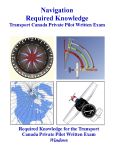Weak Knowledge Areas - Recreational Pilot Permit – Aeroplane (RPPAE)
This document was produced to inform flight instructors, pilots and student pilots of the weak knowledge areas on written examinations for flight crew licenses and permits.
Exam topics in which a mark below 50% was obtained were considered to be weak knowledge areas.
The analysis is presented where there are sufficient examinations completed to provide useful results.
General Operating and Flight Rules
- Airspace dimensions, classification and use
Aircraft Engine & Airframes
- Use of carburettor heat and its effect on mixture
Theory of Flight
- Stalling angle, level flight, climbing/descending, turns, spins
Navigation - General
- Return to departure point (reciprocal track)
Radio Navigation
- Altitude encoding Transponder
Meteorology – Theory
- Pressure systems and their variations
- Clouds – Associated precipitations and turbulence
- Wind – Land and sea breezes
- Frontal weather – Cold front
- In-flight freezing rain – Effects, predicting, avoidance
Meteorology – Practical
- Aviation forecasts – Times issued and validity periods
Aircraft Operations
- Stalls, incipient spins, spinning
Human Factors
- Illusion caused by rain on the windscreen and sloping runways
- Toxic hazards – Carbon monoxide
Glider Pilot Licence – (GLIDE)
Meteorology –Theory
- Height of cloud bases
- Inversions
- Moisture content (Relative humidity and dewpoint)
Theory of Flight
- Relationship between angle of attack and airspeed
General Operating and Flight Rules
- Classification of airspace
- Special use advisory airspace
Aerodromes and Airports
- Prohibitions
Human Factors
- Medications / Local anaesthetics
Navigation - General
- Map projections and their characteristics
